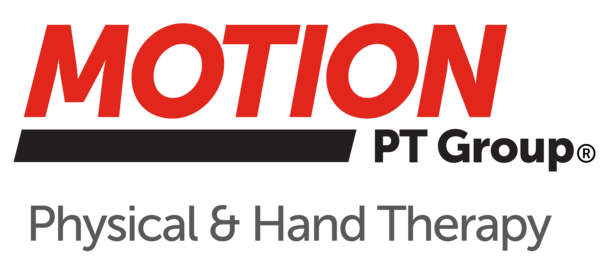Hand and Upper Extremity RehabIn Connecticut, Maryland, Massachusetts, & New York
At MOTION, our certified hand therapists (CHTs) are highly trained to rehabilitate injuries, treat all upper extremity conditions, and increase the overall functionality of your upper extremities.
The hands are extremely complex. Each hand alone has 30+ muscles and 100+ ligaments and tendons. A CHT is highly recommended for people seeking treatment for conditions or injuries to their hands and arms. They care for the most delicate and complex conditions involving the upper extremity’s nerves, muscles, bones, ligaments, and tendons.
Can you tell me more about CHTs?
CHTs are physical or occupational therapists who specialize in treating hand and upper extremity conditions. A CHT has extensive and intensive training above and beyond that of a non-CHT clinician requiring years of advanced training.
To earn this distinction, a therapist must have at least 3 years of direct patient care and 4,000 hours treating hand and upper extremity disorders. Clinicians are awarded a CHT designation when they pass a rigorous certification examination demonstrating expert knowledge of upper extremity therapy. Our CHTs stay up-to-date on the latest treatments and developments and must recertify every five years.
What Conditions Should I See a CHT for?
A CHT knows the ins and outs of rehabilitation of the hand and upper extremity injuries and conditions, from fingertip to shoulder. They excel at providing the complex therapy needed to restore fine motor skills, like writing, grasping, and manipulating objects with your hands. Our CHTs provide rehab for many upper extremity disorders, both non-operative and post-surgical. These include:
- Crush injuries
- Fractures
- Strains and sprains
- Injuries to tendons, and ligaments
- Dupuytren’s contracture
- Carpal tunnel syndrome
- Arthritis
- Nerve injury and disorders
- Dislocations
- Joint replacement
- Lacerations
- Amputation
- Infections and inflammation
- Burns
- Post-surgical care
- Limb, hand or finger reattachment
- Hand and arm function loss from a brain injury such as stroke or spinal cord injury
- Acquired or congenital deformities
What treatments does a CHT perform?
Certified hand therapists fill the gap between medical management of your ailment and full recovery. They are well-versed in the optimal treatment to use for a certain condition.
The types of interventions CHTs provide include:
- Custom-designed exercise protocols
- Compressive therapy
- Edema management
- Orthotic fabrication
- Taping
- Functional assessments
- Desensitization and sensory re-education techniques
- Training in joint protection and energy conservation
- Electrical stimulation
- Ergonomic modifications
- Design or recommendations for assistive devices
- Manual therapy
- Pain management
- Prosthetic training
- Scar management
- Thermal modalities like paraffin wax, ultrasound or low-level laser therapy
- Work conditioning and return to work programs
- Wound care
Certified Hand Therapy at MOTION
Living life would be quite difficult if your hands no longer worked. Focusing their practice on one area of the body allows our certified hand therapists to thoroughly understand upper extremity anatomy, the mechanics of each structure, and how injuries can complicate healing. Here at MOTION, our CHTs are passionate about what they do. They love it and are experts at it. They have intimate knowledge of how to restore function in your hands and arms. This extensive knowledge combined with the years of experience required for this specialized certification lead to better clinical judgement and better care overall.

